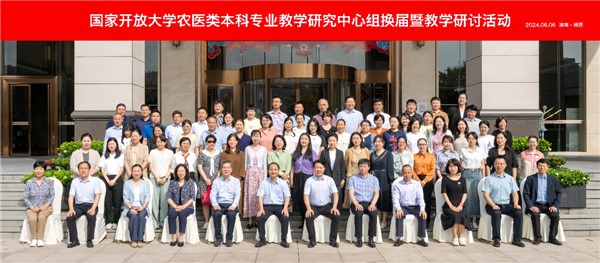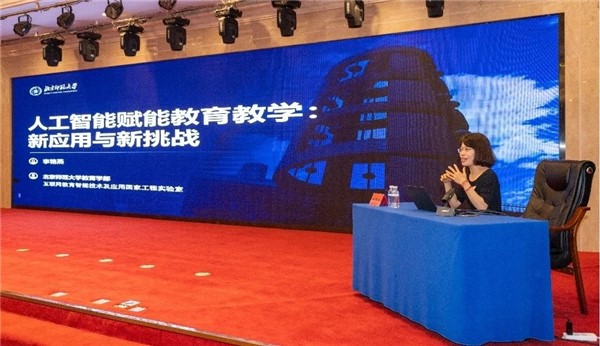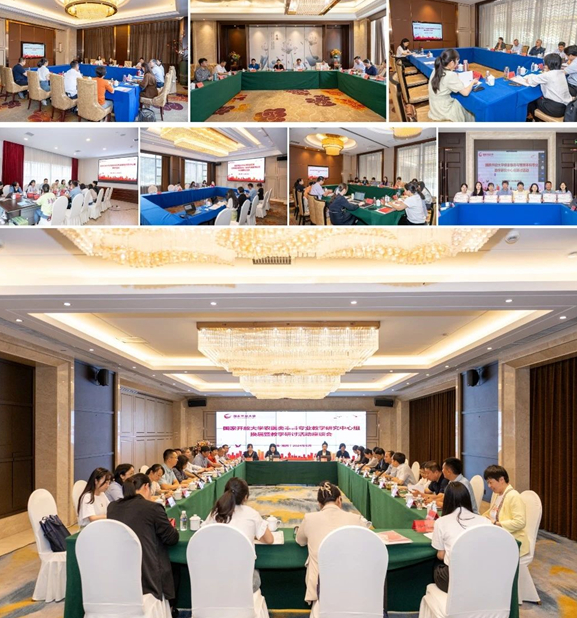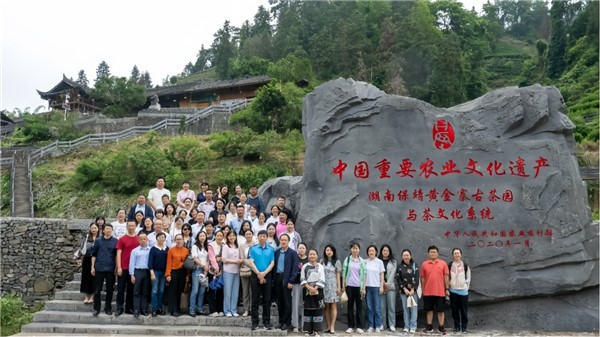 In a comprehensive effort to implement the guiding principles of the 20th National Congress of the Communist Party of China and to fulfill the fundamental task of cultivating virtue through education, the Open University of China (OUC) organised a teaching seminar and leadership transition for the central teaching and research group of agricultural and medical undergraduate majors.
In a comprehensive effort to implement the guiding principles of the 20th National Congress of the Communist Party of China and to fulfill the fundamental task of cultivating virtue through education, the Open University of China (OUC) organised a teaching seminar and leadership transition for the central teaching and research group of agricultural and medical undergraduate majors.
This event aimed to advance the construction and development of these majors, promote innovation in talent development models, and deepen educational and teaching reforms. It took place from 5 to 7 June 2024.
Zhou Tianming, vice president of the OUC; Gao Xiangwen, deputy governor of Xiangxi Tujia and Miao Autonomous Prefecture in Hunan Province; Ou Jun, deputy secretary of Party Committee at Hunan Open University; Zhang Jixian, vice president of Zhejiang Open University; Geng Yulong, vice president of Heilongjiang Open University; and Wang Ying, deputy secretary of Party Committee at Shandong Open University, attended the event.

The event comprised themed presentations, group discussions, on-site teaching and research, and panel exchanges. Over 70 members from the central teaching and research groups of the OUC headquarters and its 31 branches participated. The seminar was chaired by Li Guangde, dean of the OUC’s School of Agroforestry and Medicine (Rural Revitalisation College).

During the seminar, Zhou Tianming emphasised that the central teaching and research group is crucial for strengthening major construction, deepening teaching reforms, and improving teaching and learner development quality. On the new journey toward building a strong educational nation, the group should pool the system's resources to provide high-quality major development and talent cultivation, effectively answering the two significant questions of our time: " A Leading Country in Education, the OUC’s Role," and " Open Education and the Construction of a Learning-oriented Society." He stressed the need to fully leverage the group's leadership in major construction and educational teaching reforms, foster a student-centric approach, enhance research support for education and teaching, continuously promote teacher development, and improve the working mechanism of the central teaching and research group.

Li Yanyan, vice dean of the Smart Learning Institute at Beijing Normal University, delivered a special report titled "Empowering Education and Teaching with Artificial Intelligence: New Applications and New Challenges." She shared insights on the essence of educational digital transformation, the definition, types, and history of artificial intelligence, as well as the opportunities, challenges, and reflections that AI brings to education and teaching within the context of digital transformation.

Dean Li Guangde introduced the construction status of agricultural and medical programmes at the OUC. The central teaching and research groups for seven undergraduate majors, including Horticulture, Landscape Architecture, Rural Regional Development, Nursing, Public Service Management (Health Service Management), Pharmacy, and Health Services and Management, conducted group discussions on various topics, such as major construction and development, improvement of teaching and research capabilities for educators, practical teaching, thesis guidance, and the digital technology-enabled major construction.
During the event, Zhou Tianming engaged in discussions and exchanges with various central groups and conducted research at Xiangxi Open University on system construction, elderly education, and industry-education integration. Members of the central groups carried out on-site teaching and research activities at the practical teaching base of Xiangxi Open University, located in the birthplace of Baojing Gold Tea. They delved into the experiences and practices of Shi Yingchao, an exemplary student from the "One College Student Per Village Programme," focusing on his contributions to innovation and entrepreneurship, fostering communal prosperity, and preserving cultural heritage.

The attendees were unanimous in their praise for the event, noting its clear objectives, diverse formats, and rich content. They acknowledged that it had strengthened their collective understanding and laid a robust foundation for the advancement of agricultural and medical programmes within open education, as well as for the more effective functioning of the central groups.
Written by Cao Qinzheng, photos by Shao Dandan